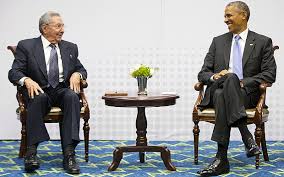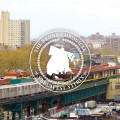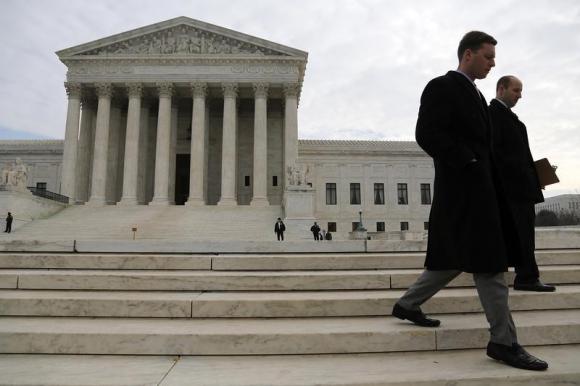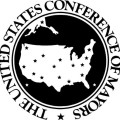 What Did President Obama’s Cuban Trip Achieve?
What Did President Obama’s Cuban Trip Achieve?
by Frank Vernuccio, Jr., JD
The results of President Obama’s recent trip to Cuba, and, indeed, the reasons for his traveling there at all, remain unclear.
 The original timing of Washington’s opening of relations with Cuba raised eyebrows. The Russians had just resumed their naval presence in the island nation, ruled by the same family that had allowed Moscow to establish a first strike capability against the United States with nuclear weapons in the 1960’s. The harsh repression of the Cuban people has not considerably lessened and Havana continues to harbor American criminals, and the Castro regime still supports terrorists.
The original timing of Washington’s opening of relations with Cuba raised eyebrows. The Russians had just resumed their naval presence in the island nation, ruled by the same family that had allowed Moscow to establish a first strike capability against the United States with nuclear weapons in the 1960’s. The harsh repression of the Cuban people has not considerably lessened and Havana continues to harbor American criminals, and the Castro regime still supports terrorists.
None of these factors had changed before the President’s visit, and none has even started to change since.
Raul Castro humiliated Mr. Obama by not greeting him at the airport, did not express any willingness to discuss human rights issues in any meaningful way, and did not show any sign of disinviting Moscow’s spy ships from its ports. But the dictator did enthusiastically mention one point: his desire to have the United States return the Guantanamo Bay naval base to Cuba.
As the New York Analysis of Policy & Government noted before Mr. Obama flew to Cuba, the President has been dedicated to both closing the prison at the “Gitmo” base as well as reducing the overall U.S. defense budget.
There no reliable, fully comprehensive details of what the President and Castro discussed. We remain concerned that handing over the entire base to Havana may have been a key point.
The White House itself has not listed any significant gains for the U.S.:
“The visit is a historic milestone after more than a year of progress from the day in December of 2014 when the President first announced he was abandoning a failed, Cold War-era approach to Cuba in favor of a new course to normalize relations. Since then, we’ve restored non-stop flights between our two countries. We’ve helped facilitate more people-to-people interaction and commercial enterprise. We’ve allowed U.S. dollars to be used in more financial transactions with Cuba. And today, we’re restoring direct mail for the first time in 50 years. The first flight carrying that first batch of U.S. direct mail to Cuba took off yesterday.”
Those limited returns are hardly substantive.
The aftermath of the trip hardly provides any encouraging news. A Yahoo news item notes this disappointing fact:
“On Tuesday, President Obama addressed Cubans about the importance of human rights and peaceful dialogue. On Thursday, pro-democracy demonstrators in Havana were beaten and arrested by Cuban police agents just steps away from where Obama had spoken. The demonstration occurred three blocks from the Grand Theater of Havana, where Obama spoke live to the Cuban nation, and was swiftly broken up by plainclothes officers, who attacked demonstrators violently and then stuffed those they had captured into police cars and swept them away within moments. “
While Cuba has gained from the President’s visit, there is little more than “hope” that anything America is seeking will be accomplished. In a March 22 press conference, Secretary of State John Kerry was asked: “You’ve said in the past that the embargo would not be lifted unless there’s improvement on the human rights record of Cuba, yet yesterday the President said he believed that the embargo would be lifted. Would that happen if there is no progress in the human rights record in Cuba?”
Kerry’s response was typical of the vacillating foreign policy stance the Obama administration has adhered to:” No, I think the President is really referring to – it would be lifted over a period of time, because there will be, I’m confident, changes taking place. Changes are taking place in Cuba even now. I mean, I know some people want some dramatic announcement that all of a sudden, okay, here’s the new rules of the road, but that’s not the way it’s going to happen. But there is more political space today in Cuba than there was before the announcement of our embassy and before I came here to raise the flag, and in the year following, more people are traveling, more people are exchanging information, more people are meeting. There is an atmosphere of transformation that is taking place, and it doesn’t happen overnight anywhere. It has never happened; it’s been a slow, long building process in most places.”
This has been a standard course of action in President Obama’s international dealings. The United States provides solid concessions, such as handing Russia the lead in nuclear weapons in the New Start Treaty, giving Iran the financial considerations it seeks, and so on, while getting no guaranteed gains in return. It has worked well for the U.S.
Frank Vernuccio, Jr. serves as editor-in-chief of the NY Analysis of Policy & Government
















Follow Us